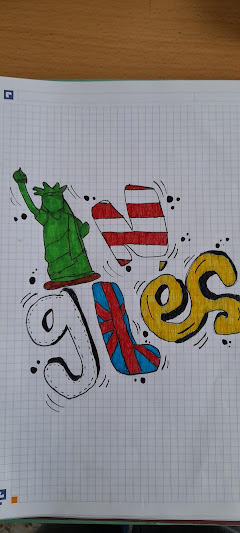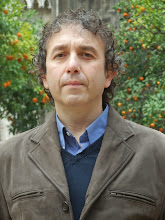CONDITIONAL CLAUSES (EXTRA)
1) ZERO CONDITIONAL
IF-CLAUSE:
Present Simple MAIN
CLAUSE: Present Simple / Modal / Imperative
EXAMPLE:
If you don't eat enough healthy food, you get ill
Metal gets hot if you heat it
Water boils if it reaches 100 ºC
If you train hard, you can improve your marks
If you are bored, read a book
If you don't eat enough healthy food, you get ill
Metal gets hot if you heat it
Water boils if it reaches 100 ºC
USES:
·
To
describe general facts or true situations.
·
If can be replaced by when or whenever since
we are talking about something always happens.
2) WISH / IF ONLY (if only is
more emphatic)
They are used to express REGRET (pesar, lamento, arrepentimiento) or COMPLAIN (queja).
* PRESENT
SITUATION: wish / if only + Past Simple or Continuous. REGRET.
I wish the Artic Monkeys were
touring again this year
If only David didn't live next door
/ I wish I knew the answer / I wish she were here
* PAST
SITUATION: wish / if only + Past Perfect. REGRET.
I wish I had followed my friend's
advice and not gone out with Paul
If only I had visited Hawaii when I
had the chance / I wish I had eaten less
* PRESENT
SITUATION for a FUTURE CHANGE: wish / if only + would (could). COMPLAIN. Subjects in both clauses must
be different.
I wish my boyfriend would stop
smoking / If only you would shut up!
I wish she would notice me / I wish
it would stop raining
She wishes he could come with her
3) AS LONG AS / PROVIDED
(that) / PROVINDING (that)
They are usually only used in the FIRST conditional
with the meaning of ONLY IF.
You can go out tonight as long as you finish
your homework
He will work for them provided that they offer
him more money than his present company
She will go to university providing she can pay
her fees
4) EVEN IF
To give emphasis where the action of the main
cannot be change whatever the if-clause states.
She wouldn't have won the race even if she had
trained harder
5) UNLESS
With the meaning IF ... NOT.
You won't go on holiday this year unless you
save some money
Unless you studied you wouldn't go out tonight
6) WILL and WOULD
WILL and WOULD are not normally used after IF
in Conditional Sentences except:
- POLITE CONDITIONALS (meaning 'are / were
willing to'):
If you will take a seat, the director will soon
come
If you would let me know the answer, I should
be most grateful
- POLITE REQUEST (meaning 'I wonder if you
would / could ...'):
(I wonder) if you would tell the teacher I am
waiting for him
(I wonder) if she could take a message for me
- WILL strongly STRESSED (showing emphasis on
an habit and its consequences):
If you will arrive late, the teacher will get
annoyed
- WON'T (meaning 'refusal'):
If he won't learn his lesson, he will never
improve his French


